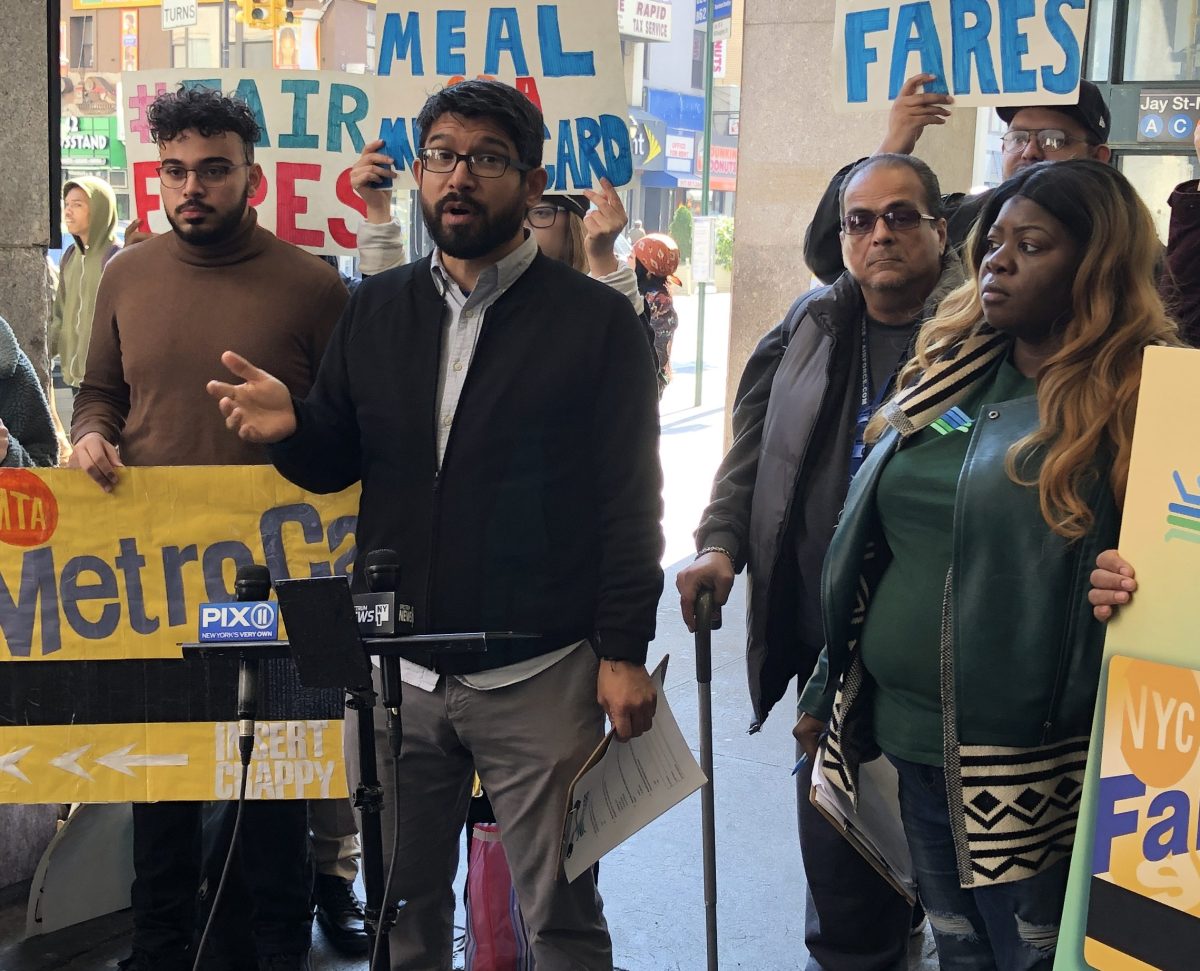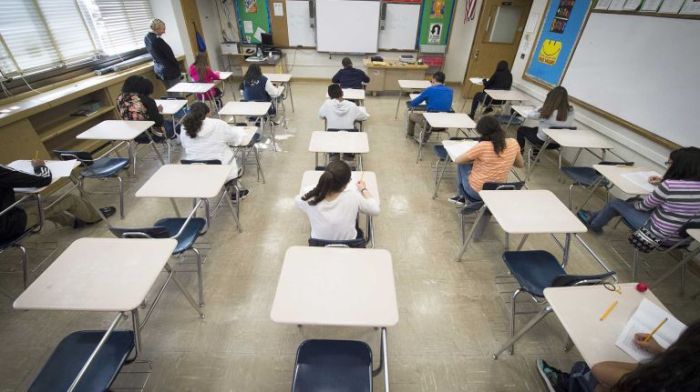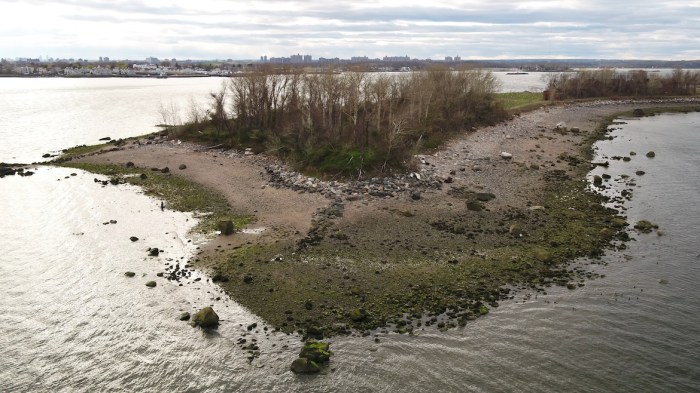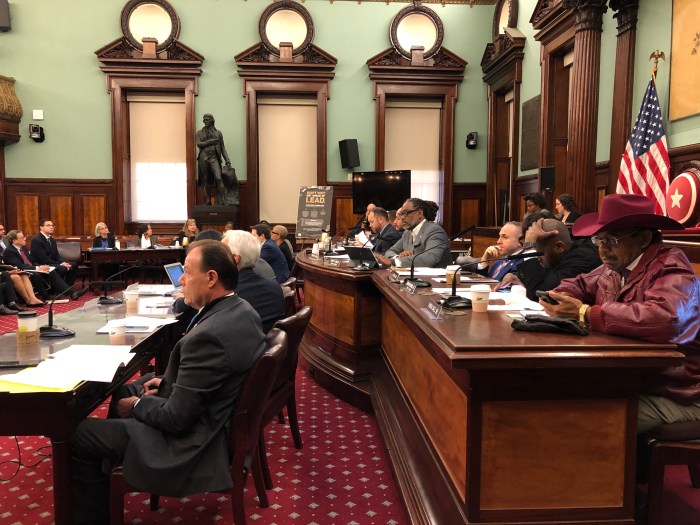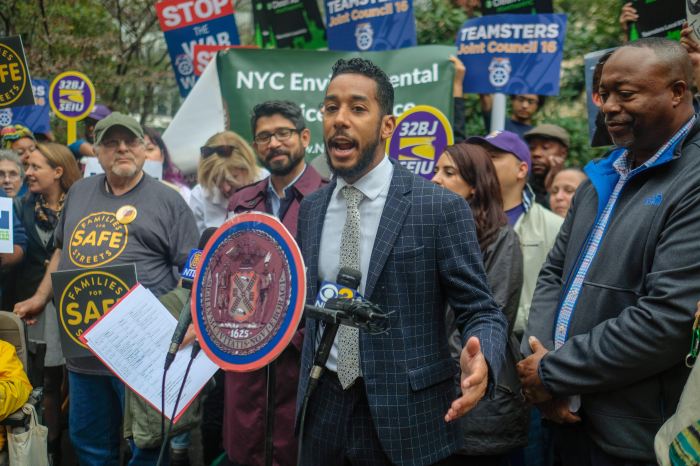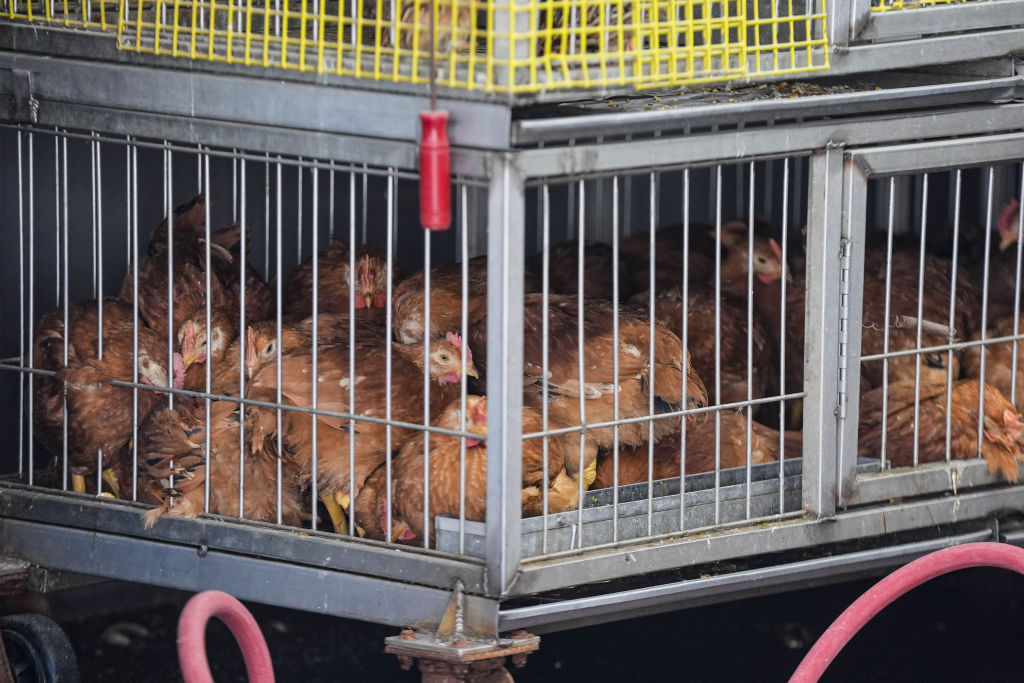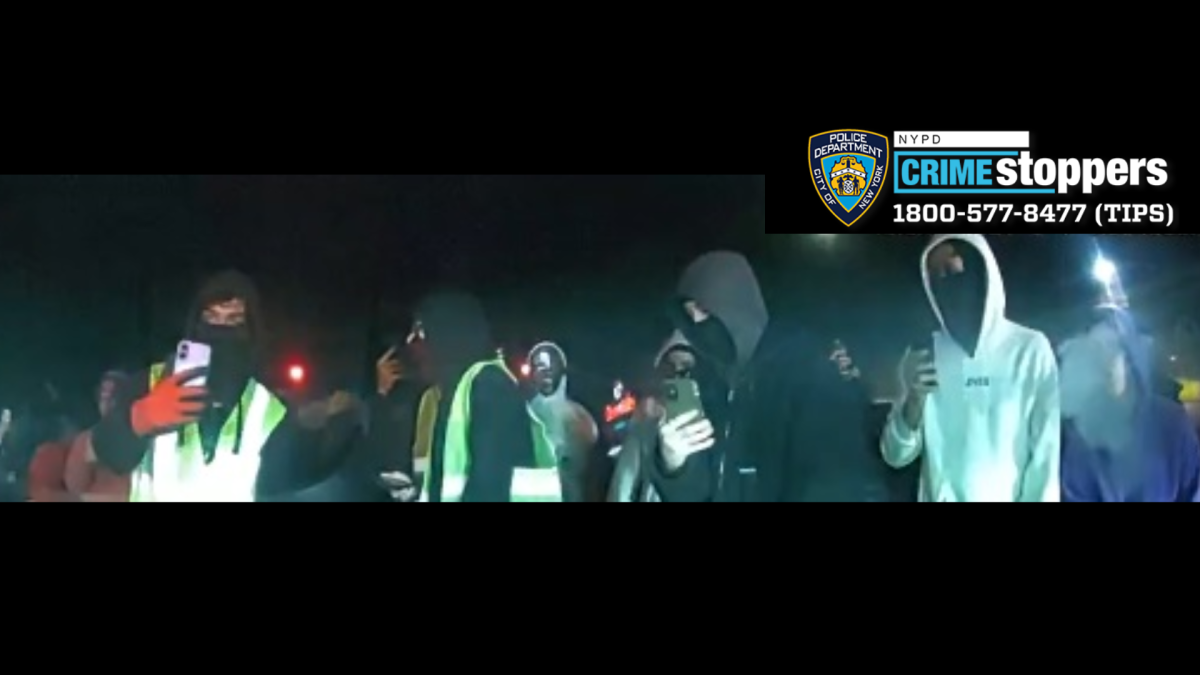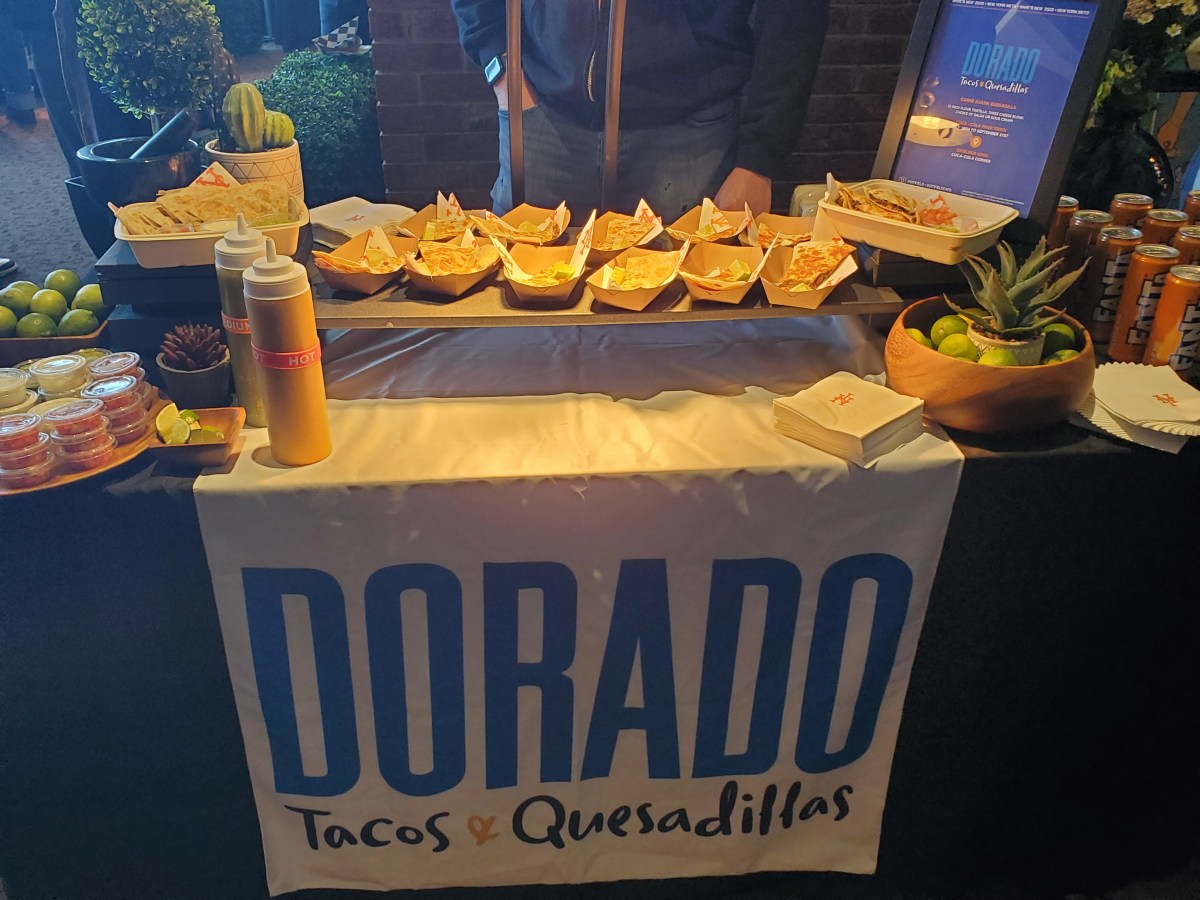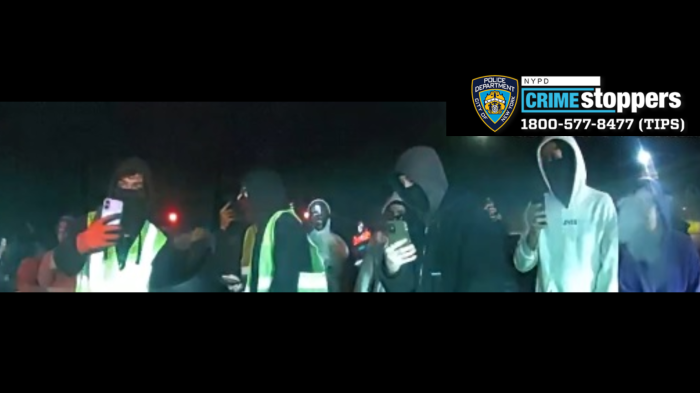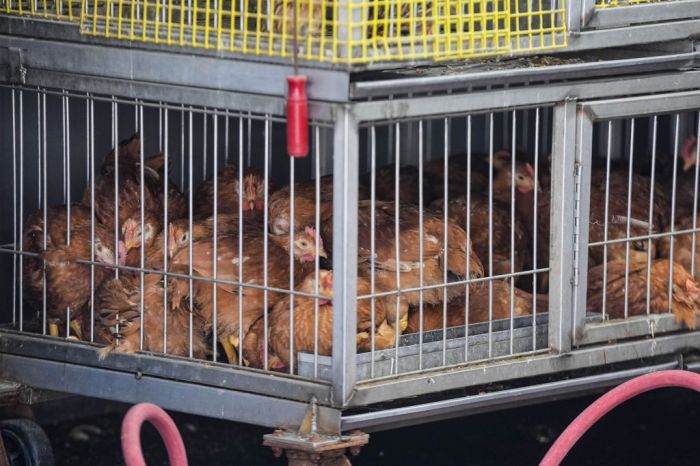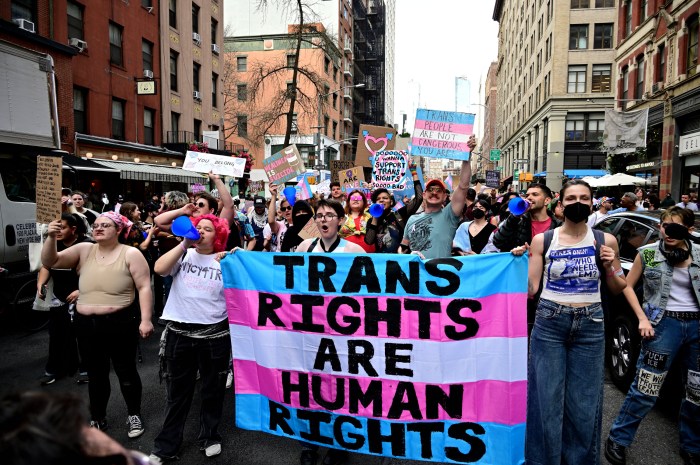Just weeks after the most prominent member among the five out gay City Council members — Speaker Corey Johnson — bowed out of the 2021 race for mayor, one of his colleagues, Brooklyn’s Carlos Menchaca, floated the possibility that he would step up for the contest.
Mid-afternoon on October 9, Ben Max, the executive editor of Gotham Gazette, an online watchdog publication of the Citizens Union Foundation, tweeted his discovery that Menchaca — who has represented Sunset Park, Red Hook, Greenwood Heights, and portions of Borough Park since January 2014 — had opened an account with the city Campaign Finance Board for a mayoral run.
Menchaca did not respond to Gay City News’ query to him asking for clarifications of his plans but later in the afternoon, tweeted, “Amigos: These past months I’ve been thinking a lot about our City and how we could do better, we must do better. Nothing is official… will share news soon. #brighterdays”
Menchaca recently won widespread attention for his successful effort to block the Industry City redevelopment in an underutilized warehouse district along the Sunset Park waterfront that would have created three new buildings housing film studios and office and retail space.
Andrew Kimball, the Industry City CEO, had promised that 15,000 jobs would be created by the project, but Menchaca charged it would lead to gentrification of the working class, largely immigrant surrounding community without guarantees of significant benefits to its current residents.
As councilmember for the district, Menchaca enjoyed a strong voice regarding the project on a City Council that traditionally defers to the local member on land use approvals. Menchaca, however, drew fire from one of his gay colleagues, the Bronx’s Ritchie Torres, who, fresh from a victory in the Democratic primary for an open US House seat, argued in favor of the project on job creation grounds.
Torres’ position was quickly undercut, however, when numerous local elected officials — including Congressmembers Hakeem Jeffries, Yvette Clarke, Nydia Velázquez, and Jerry Nadler jumped into the fight on Menchaca’s side.
The following day, Industry City withdrew its land use application from the Council.
An outspoken champion of the Latinx and Asian-American constituents he represents, Menchaca has been a searing critic of President Donald Trump’s Immigration and Customs Enforcement (ICE) efforts, and last year took on Mayor Bill de Blasio over a list of criminal offenses which the mayor said would qualify for the city to be willing to work with ICE agents on tracking down undocumented residents.
Menchaca also clashed with several gay colleagues this summer over the city’s budget. He and Jimmy Van Bramer of Queens, who is also gay, were among the 17 councilmembers who voted against the budget Johnson had negotiated on the Council’s behalf with de Blasio.
Menchaca and Finance chair Daniel Dromm got into a heated Twitter dispute over claims that the budget cut roughly $1 billion from the NYPD’s $6 billion budget in response to racial justice protests. Menchaca, along with many other critics of the budget, noted that a significant portion of that $1 billon was merely shifted to other city agencies for the same police purposes.
Though Menchaca rose up in politics as an insider — first as an aide to Brooklyn Borough President Marty Markowitz and later to City Council Speaker Christine Quinn — he has cut an independent figure in his eight years on the Council, at times alienating other Brooklyn members. Former Councilmember David Greenfield, a social conservative who represented an adjacent district with a large Orthodox Jewish community, was a particular nemesis.
In 2017, Menchaca handily withstood a primary campaign by Assemblymember Félix Ortiz and the county Democratic organization to unseat him after one term. (Ortiz, who was first elected in 1994 and is the Assembly’s assistant speaker, was defeated for reelection in this June’s Democratic primary.) His district’s representative in the US House, Velázquez, however, has been a consistent ally of Menchaca’s.
Menchaca, who is 40, was the first out gay legislator elected in Brooklyn and the Council’s first Mexican-American member, having grown up in public housing in El Paso, Texas, one of seven children raised by a single mother.
In a 2013 interview, Menchaca credited his mother’s influence in encouraging his interest in learning, but he also noted the government social safety net that was vital to the family’s well-being. When he decided to challenge Sara González, an 11-year incumbent twice his age, he cited the city government’s failures during the Superstorm Sandy crisis the year before as the motivating factor.
“Government was nowhere to be seen,” Menchaca said at the time, as he promised to be a candidate and legislator who would be “visible and active.”
One undeniable skill Menchaca brings to his political career is his skill as a community organizer. It helped him turn out record numbers of primary voters, both in 2013 and 2017. As the Trump administration’s ICE crackdown on undocumented immigrants stepped up in recent years, Menchaca worked to facilitate dialogue between undocumented transgender women in his district and the Lambda Independent Democrats, the borough’s LGBTQ political club that has traditionally drawn most of its membership from heavily white, more affluent neighborhoods.
If he jumps into the mayoral race, Menchaca would join Loree Sutton, a retired US Army brigadier general who is a psychiatrist and served as the first commissioner of the city’s Department of Veterans’ Services, as an LGBTQ contender for the city’s top job.
This article first appeared on our sister publication Gay City News.



